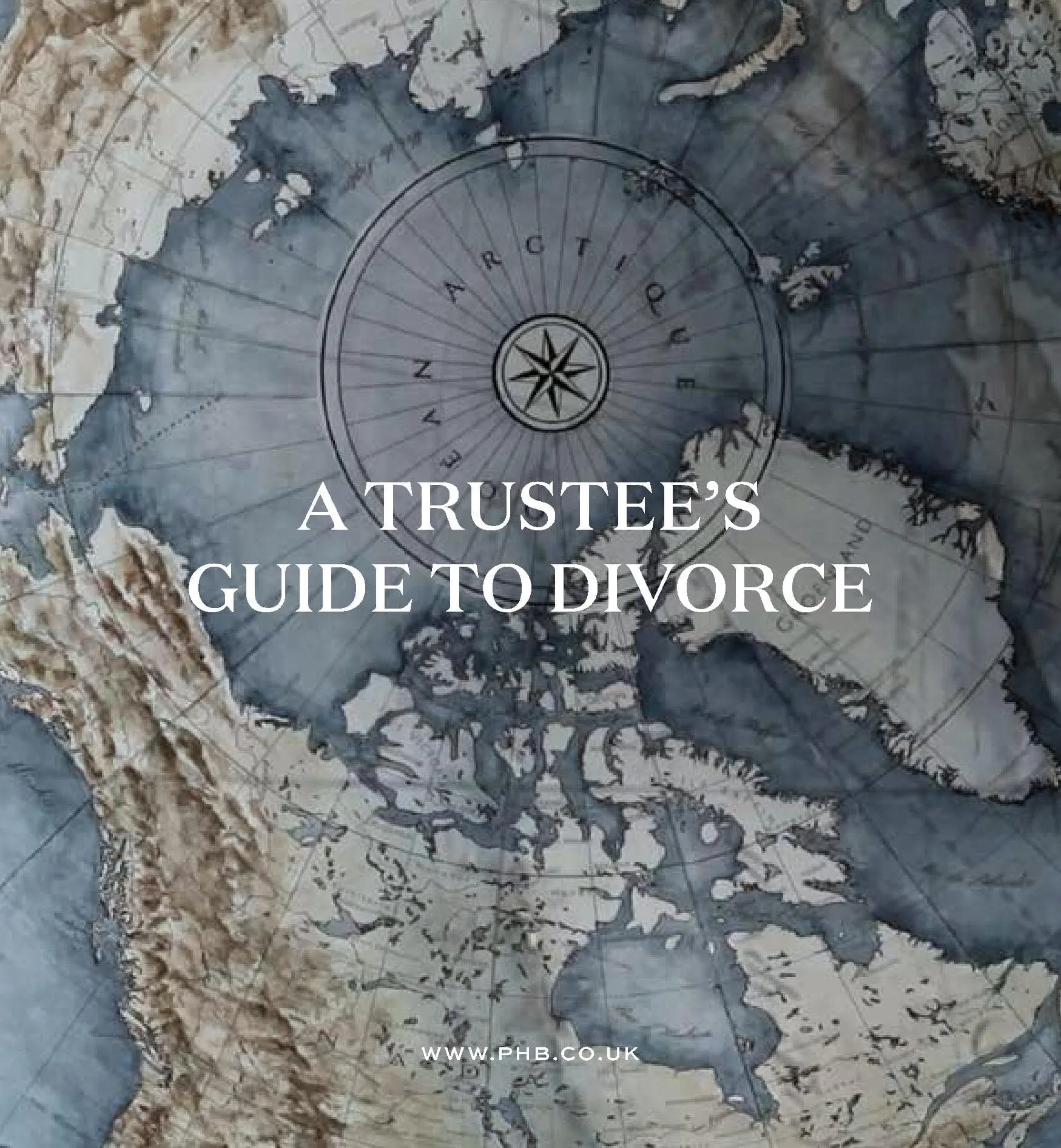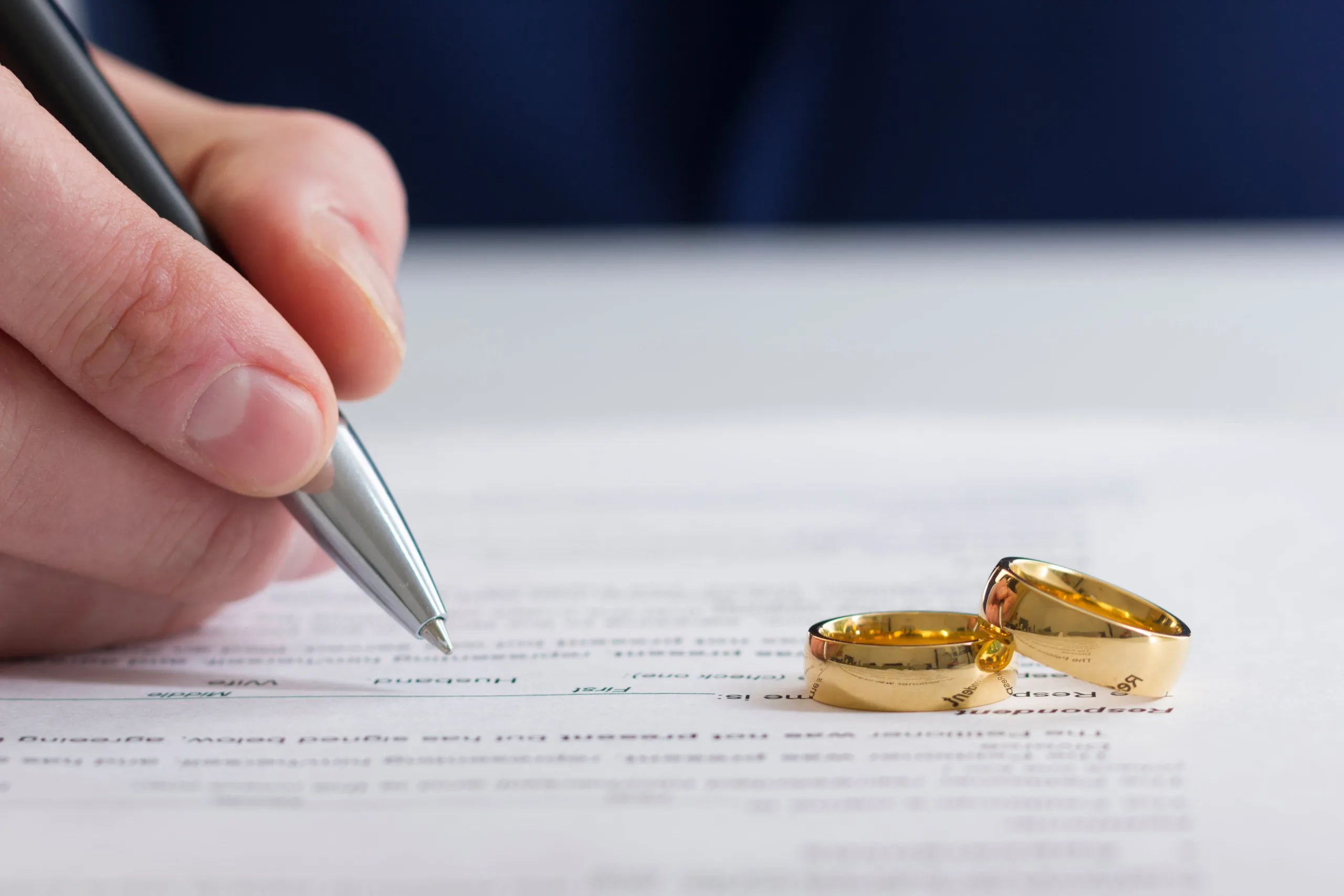We have not even started divorce proceedings yet; what can I do?
If the divorce is not yet underway when a bankruptcy starts, sadly you will go to the back of the queue in terms of receiving assets from your spouse. You may be able to keep what is in your own name, including any share of the family home, but once a Trustee in Bankruptcy is appointed, they can utilise whatever assets are in your spouse’s name as they see fit, and they will also have the power to potentially recover gifts made to you, including jewellery etc. The Trustee in Bankruptcy will have the power to financially unpick the last few years of the marriage, particularly if assets have been transferred at an undervalue.
If you are concerned about a future bankruptcy for your spouse then you would be well advised to take a good look at your own financial position and how secure it is. How is the house held? Do you have anything in your name? Are you a company director with your spouse, which might mean you have personal liability on their bankruptcy? Any transfers made between spouses before bankruptcy can potentially be overturned, but it is worth being aware of what is coming and trying to strengthen your position, or at least considering whether a divorce is now the best way to proceed. Early legal advice is highly recommended.
I have a final Court Order for the finances; surely that will protect me?
The final goal on any divorce is to have a final Divorce Order and a final Financial Order in relation to your finances. If you have both then it is harder for the Trustee in Bankruptcy to challenge what has been set out. However, that is not always the end of the story. The Trustee can challenge transfers if they can prove there has been fraud, collusion or concealment, or if your spouse knew at the time of the Financial Order being made that they were insolvent.
An order for maintenance for you or for child maintenance will continue on the making of a bankruptcy order, although it is likely to need to be enforced, which will take you into the debtors’ queue once more.
It can help to have your spouse declare in the final Financial Order that they are solvent as at the time the order is made. If you are able to secure this declaration then once the final Financial Order is made, you will need to move swiftly to implement it. Any payment under that order is a debt in the bankruptcy, but you will be an unsecured creditor, so, again at the back of the queue behind secured creditors such as a mortgage provider.
We have not got as far as a final Financial Order yet; what can the Court do?
Once the bankruptcy order is made, the Court’s powers to make financial orders on divorce are restricted. The Court cannot order the transfer of assets from your spouse to you, and it is therefore much harder to get a lump sum of cash or ongoing maintenance. Any transfer of property after a bankruptcy petition has been presented will be void However, the Family Court can still make a pension sharing order when bankruptcy proceedings are underway, which may help.
With regard to the family home, it is imperative for you to check very quickly how the title to the property is held. If it is held in your spouse’s sole name, then there is very little you can do about this, save that you can register your right to occupy the property under the Family Law Act, so that at least it cannot be sold without your express consent.
If your home is held in joint names, it can be transferred to your sole name if the Trustee in Bankruptcy agrees. However. they will only usually agree to do so if you are able to buy out your spouse at market value. Otherwise, the property is likely to be sold and you will retain your share of the proceeds of sale. It is worth noting that the Trustee in Bankruptcy cannot enforce a Court order for the sale of a family home for 12 months after it is made, unless the Court says otherwise. This is to enable you to arrange for somewhere else to live.
I think my spouse has gone bankrupt on purpose to thwart me; can it be stopped?
There have been a number of reported cases where spouses have deliberately made themselves bankrupt to defeat their spouse’s claims. The threat of self-inflicted bankruptcy is often made by self-employed spouses who would rather wait out the year of bankruptcy than pay their spouse. The Courts are wise to this happening, and have not looked upon such actions kindly previously. You can apply to the Court to annul the bankruptcy if you can show that the reality is that they were not insolvent but were using this as a device to gain an advantage in financial remedy proceedings.
Sometimes the bankruptcy may be genuine and inevitable. Whatever the circumstances, the best way to be prepared is to take early advice from a solicitor who can deal with such cases, make sure assets are in your name if at all possible, and get your final Financial Order swiftly, even if that is not necessarily the end of the story. A solicitor will be able to advise you how the situation is likely to unfold and will be able to direct you to helpful resources. Both divorce and bankruptcy are extremely stressful situations and it is imperative to protect your own well-being and mental health whilst dealing with such circumstances. Payne Hicks Beach has spearheaded a campaign to produce a suite of resources to help those clients faced with challenging circumstances, including producing a “Vulnerable Clients Survival Guide” which we would recommend as valuable reading to our clients. A copy of the guide can be found here
For further information, please contact Charlotte Skea-Strachan, Legal Director in the Family department or, alternatively, telephone on 020 7465 4300.
To learn more about divorce and separation you can download a free copy of our Essential Guide to Divorce and Family Law here.






